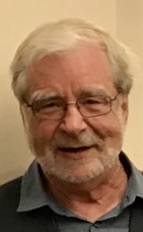Thinking like a Civilian
- Marvin T. Brown

- Feb 9, 2021
- 2 min read
Updated: Jan 20

All of us are civilians most of the time, but many of us rarely think like one. If we are to save the planet, we had better get on board. Warriors and soldiers will not get us where we need to go.
According to the 1949 Geneva Protocol on the protection of civilians, civilians are non-combatants, which means that they don’t have guns and cannot force others to do their will. The significance of this international humanitarian law is that civilians are no longer at the mercy of military rulers. Instead of relying on a ruler’s good will, civilians should be able to rely on the rule of law. They have a right not to be harmed.
Although we have a civilian government, we have never been very interested in protecting civilians. Just the opposite: from the massacres during the Indian Wars to the killing of civilians in Vietnam, we have seen civilians, for the most part, as weapons of war. More recently, we have ignored their plight, as we see in our lack of interest in Syrian civilians.
In researching and reflecting on what we need to do to protect the planet, I have come to the conclusion that we need to have some capacity to step into the shoes of civilians and see our society from their perspective. As I demonstrate in my forthcoming book, A Climate of Justice, protecting civilians and protecting the planet belong together—you cannot have one without the other.
During the demonstrations in Ferguson, Missouri, a black teenager told a news reporter; ”The police treat us as suspects, rather than as civilians.” Black Lives Matter can be seen as a protest against the violation of the civilian rights to protection and provision.
White men can also be civilians, but the challenge for us would be to accept that we cannot protect ourselves and must rely on the enforcement of law. That would mean the end of civilian armies, an acceptance of one’s vulnerability, and an active engagement in promoting the rule of law. Sounds somewhat un-American.
On the other hand, the pandemic exposed everyone as vulnerable and as dependent on government agencies. Public Health focuses on the health of the public, and our public will not be healthy until the most vulnerable are protected. It doesn’t take a genius to figure that out.
In a social climate of injustice, those with resources will exclude those without from the public sphere. They don’t matter. In a social climate of justice, those with resources would provide protection and provisions for others.

Comments